Case study: The Mayor of Mancunia
The Mayor of Mancunia is a narrative game where a single player takes on the role of the ruler of the newly-established Independent Republic of Mancunia, making decisions about Mancunia’s food system. This is a behind-the-scenes about a project which changed a LOT once we started speaking to people.
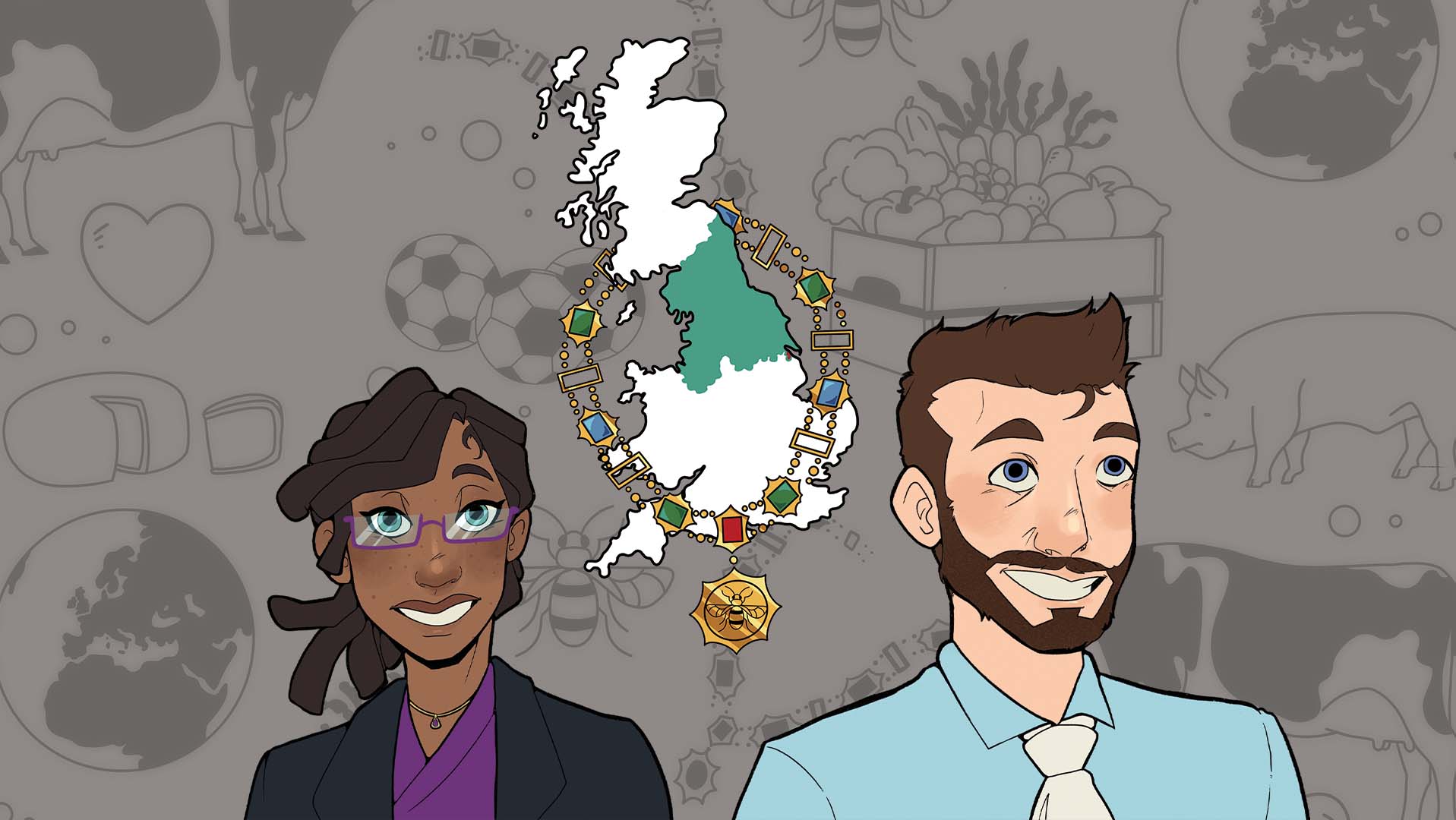
The Mayor of Mancunia is a narrative game where a single player takes on the role of the ruler of the newly-established Independent Republic of Mancunia. Assisted by two slightly rogue advisors, the Mayor has to make decisions about Mancunia’s food system, to deliver a brighter future for people and planet. The Mayor of Mancunia was created for Manchester Museum, and was commissioned by the Sustainable and Healthy Interventions for Food (SHIFT) project at the University of Oxford, which works with the public and policy-makers to design interventions to make the food system more environmentally sustainable.
The Mayor of Mancunia came about after Lucy Yates, Public Engagement Lead for SHIFT, played the Wild interactive which we had created for Manchester Museum. Working to a fairly tight budget and timeline, we envisaged it to be similar, repurposing the tech platform we had built for Wild, with a couple of extra features built in. It would be a 5 minute interaction, probably some kind of quiz which would share SHIFT research and let us find out what people thought about different policies which would see government taking the lead on reducing meat consumption.
But when we started doing workshops to test content for the game, we realised that wouldn’t work. Chatting to people in community kitchens and gardens, it became clear that lots of people didn’t think of food as a climate change issue. If they did connect the food industry with climate change, it was usually about plastic food packaging. If they thought they should be eating less red and processed meats, it was about their health rather than the impact of the meat and dairy industry on the planet. Other climate change public engagement projects we’d done had mainly been about getting people to go beyond knee-jerk reactions. This was going to be different - we would need to find a way of sharing information before we could discover what people thought about different policy interventions.
It was also apparent that the cost of living crisis had got there before us: people had already cut down on the meat they were eating because they couldn’t afford it. In one workshop, a participant talked about cooking a roast for a family celebration and I asked what the centrepiece would be. The reply came with a laugh: “Chicken. I can’t afford anything else.” As we considered policy interventions to include in the game, we were aware that any policy that increased the price of meat would further turn it into a luxury commodity, inaccessible to the majority of people but attainable in abundance for the wealthy… the very people whose diets most adversely impact the planet. The complexities and sensitivities of the issue meant this couldn’t be a breezy 5 minute dwell-time quiz.
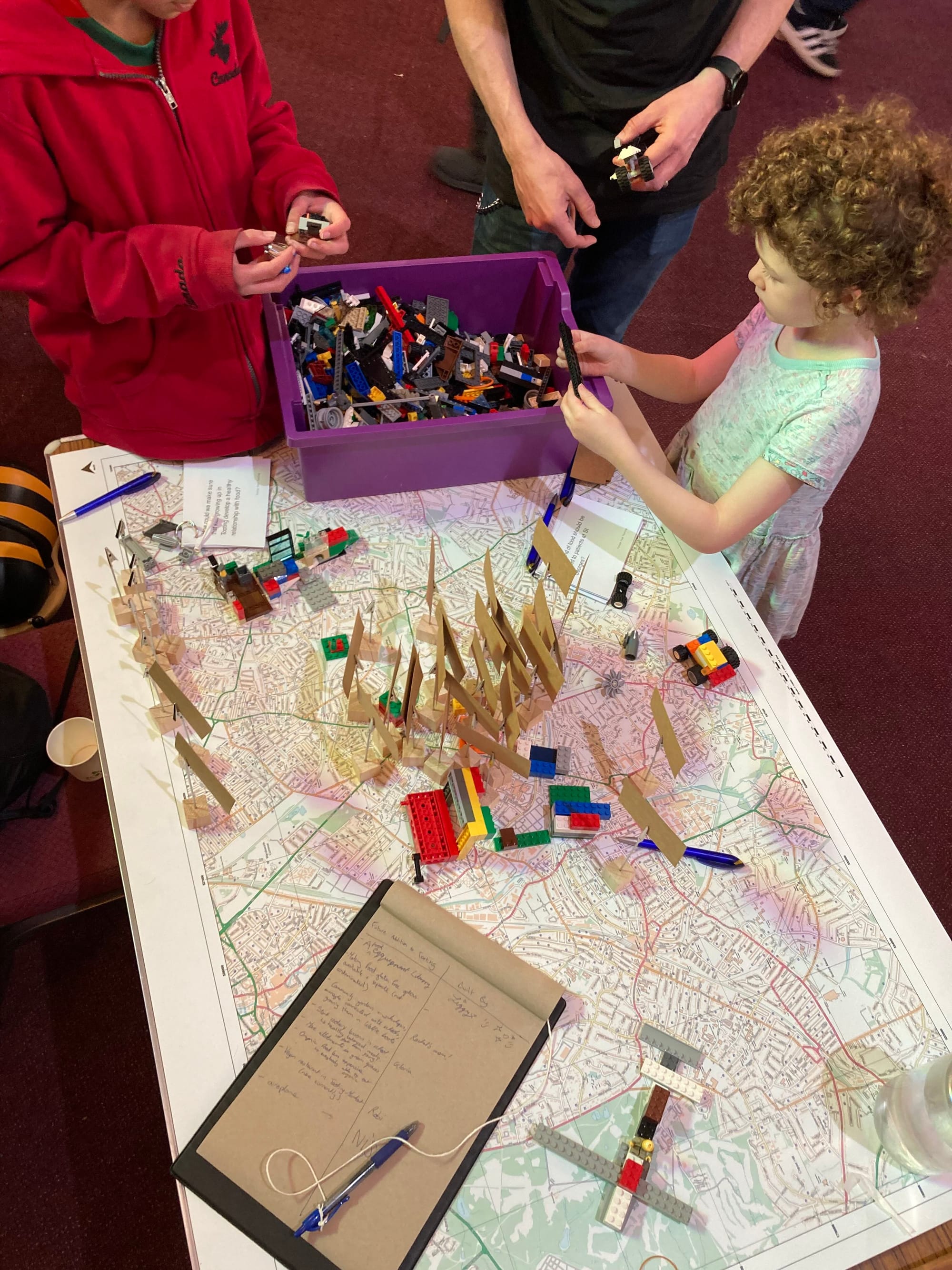
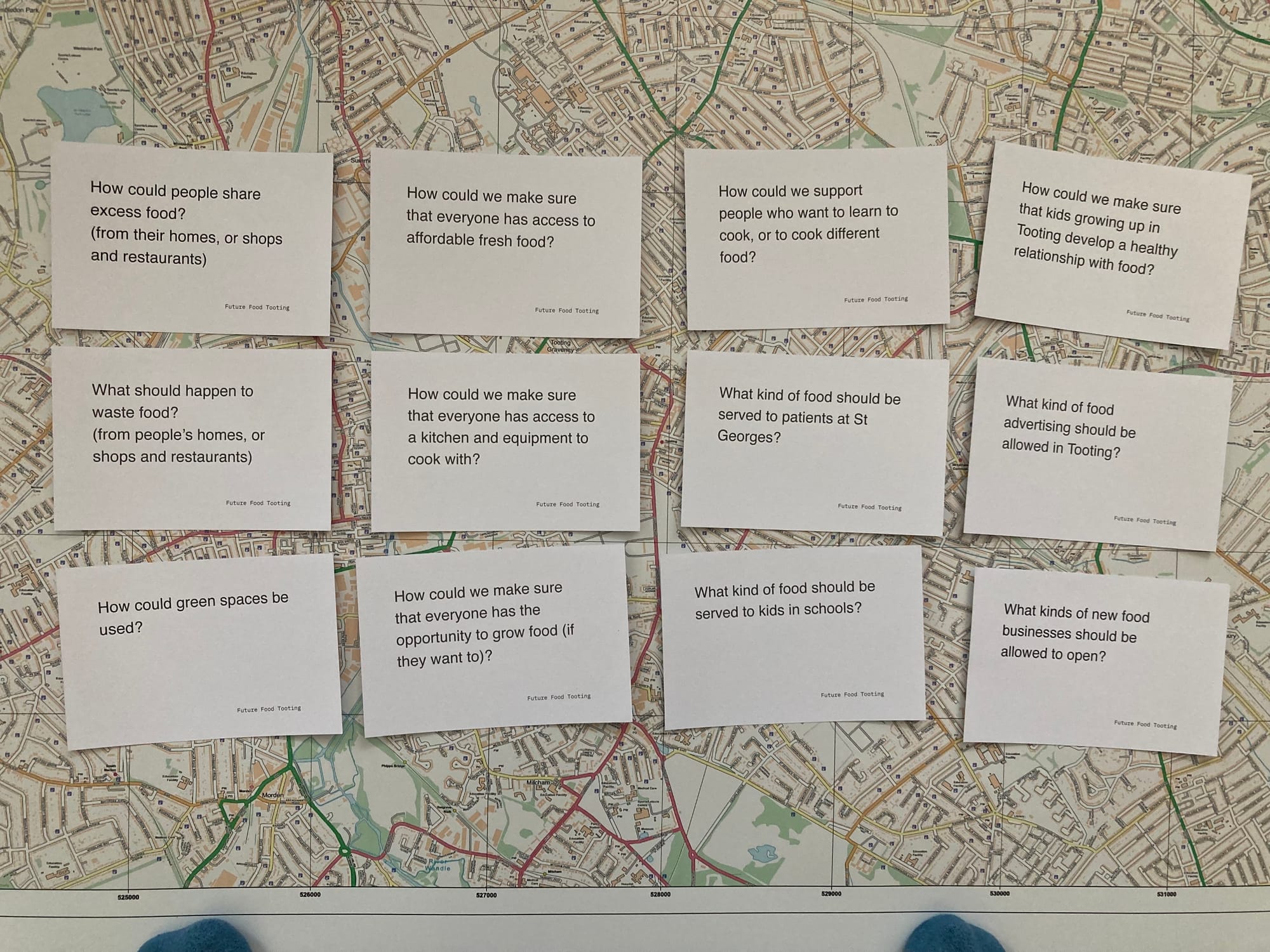
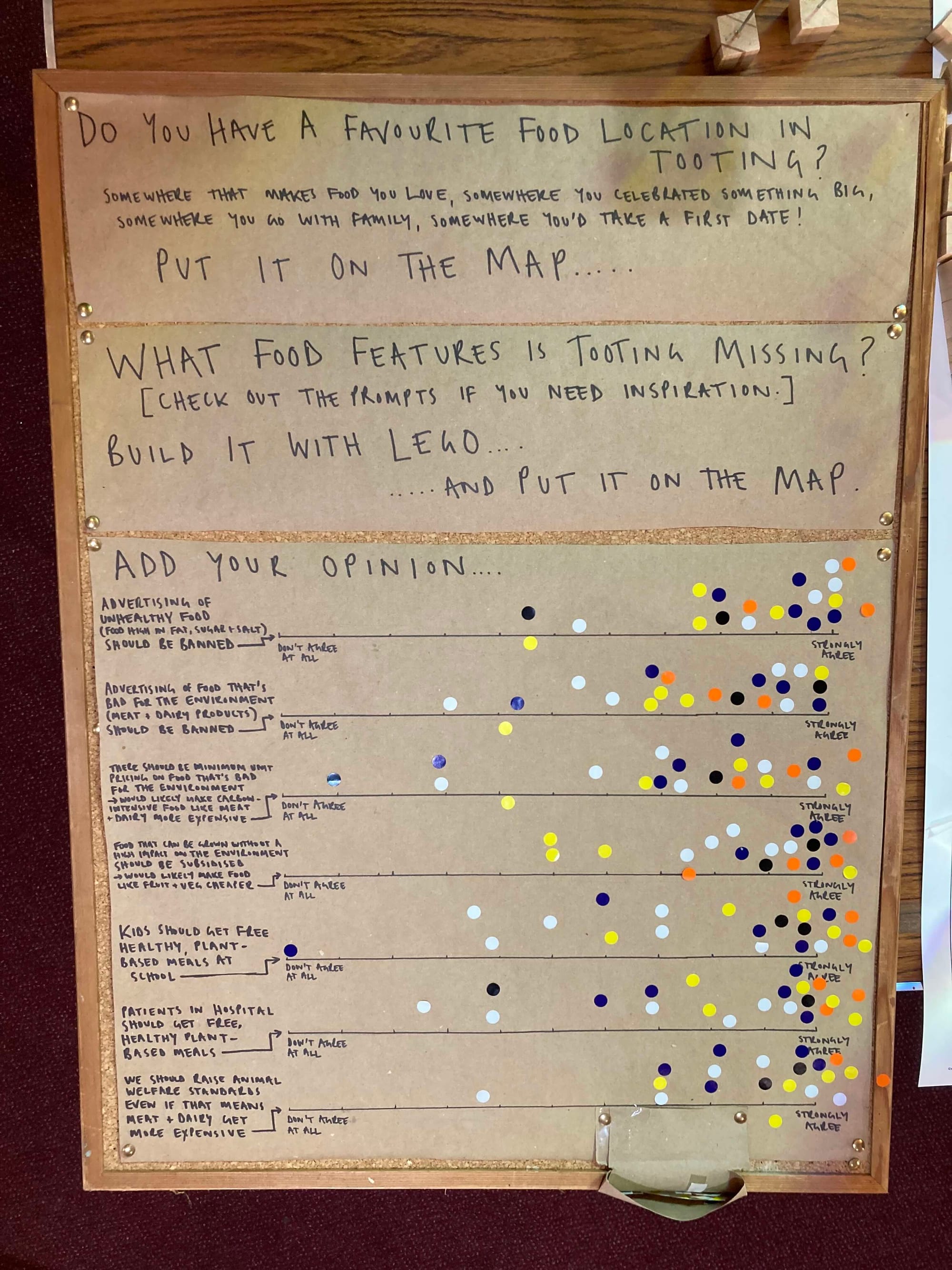
We discovered that the form needed to change too. In a workshop where we were testing a beta version of the game, we had a group of participants who weren’t comfortable reading English in the quantities that the game used it to explain the link between climate change and the meat and dairy industries. The game is set out as the two advisors speaking to the Mayor, with the Mayor choosing their responses. So I read the speech bubbles out, trying to embody these two characters that I’d written. The jokes got some laughs. I realised that if we added audio to the experience, it would be accessible and enjoyable for many more people. Especially if we got some actual actors to do it.
What we’ve ended up with is a 10 minute interaction, with headphones. There are 3 episodes, each exploring a different policy area; people who’ve played an episode in Manchester Museum can choose to be sent the following episodes when they’re ‘released’ i.e. when the interactive in the museum changes which episode it displays.
The experience tries to explain the role of food systems in climate change. Then it introduces a policy idea. The response options available to the player draw on what participants said to us in workshops. Hopefully, they help players think through how a policy would work and its implications.
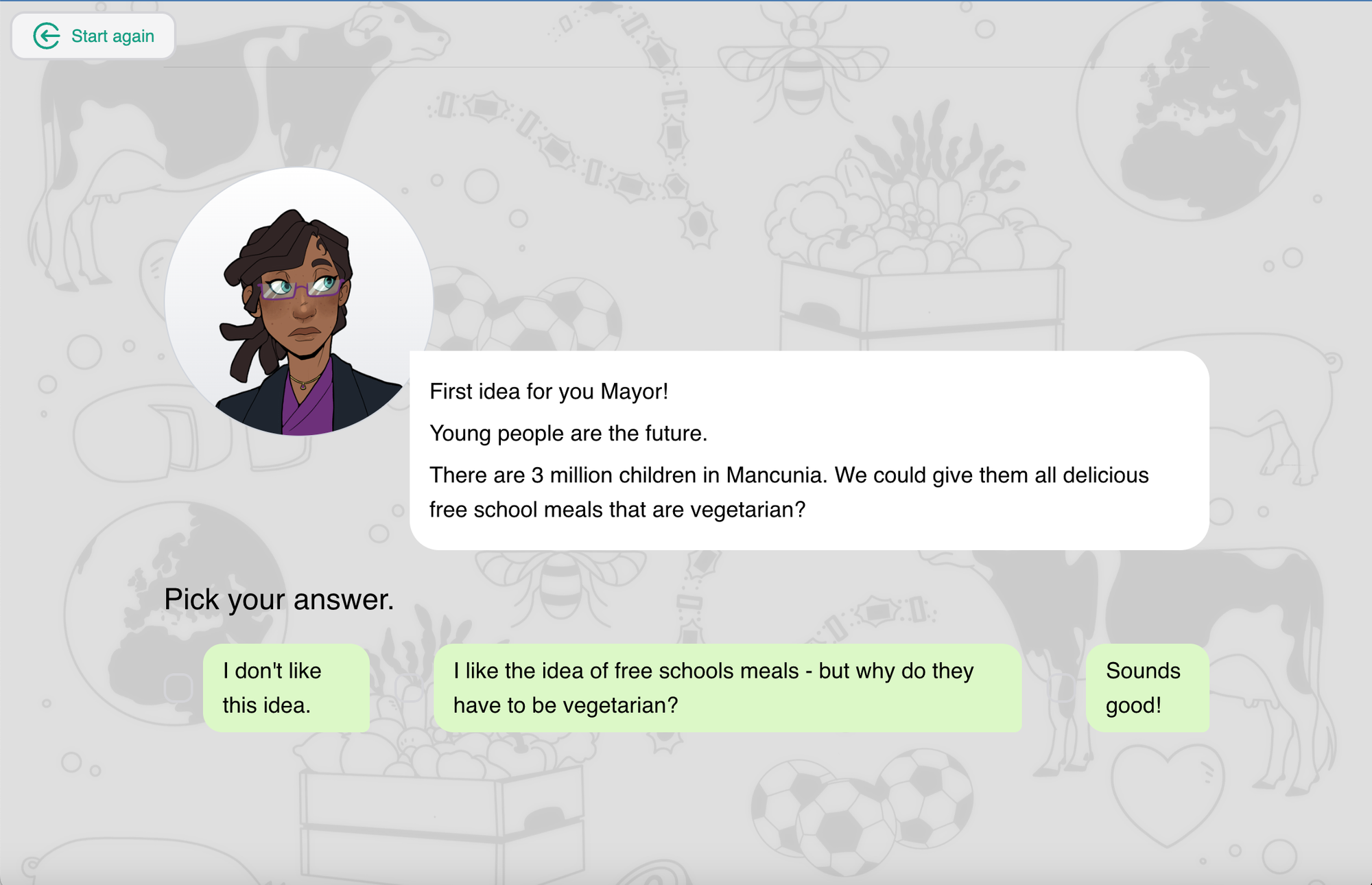
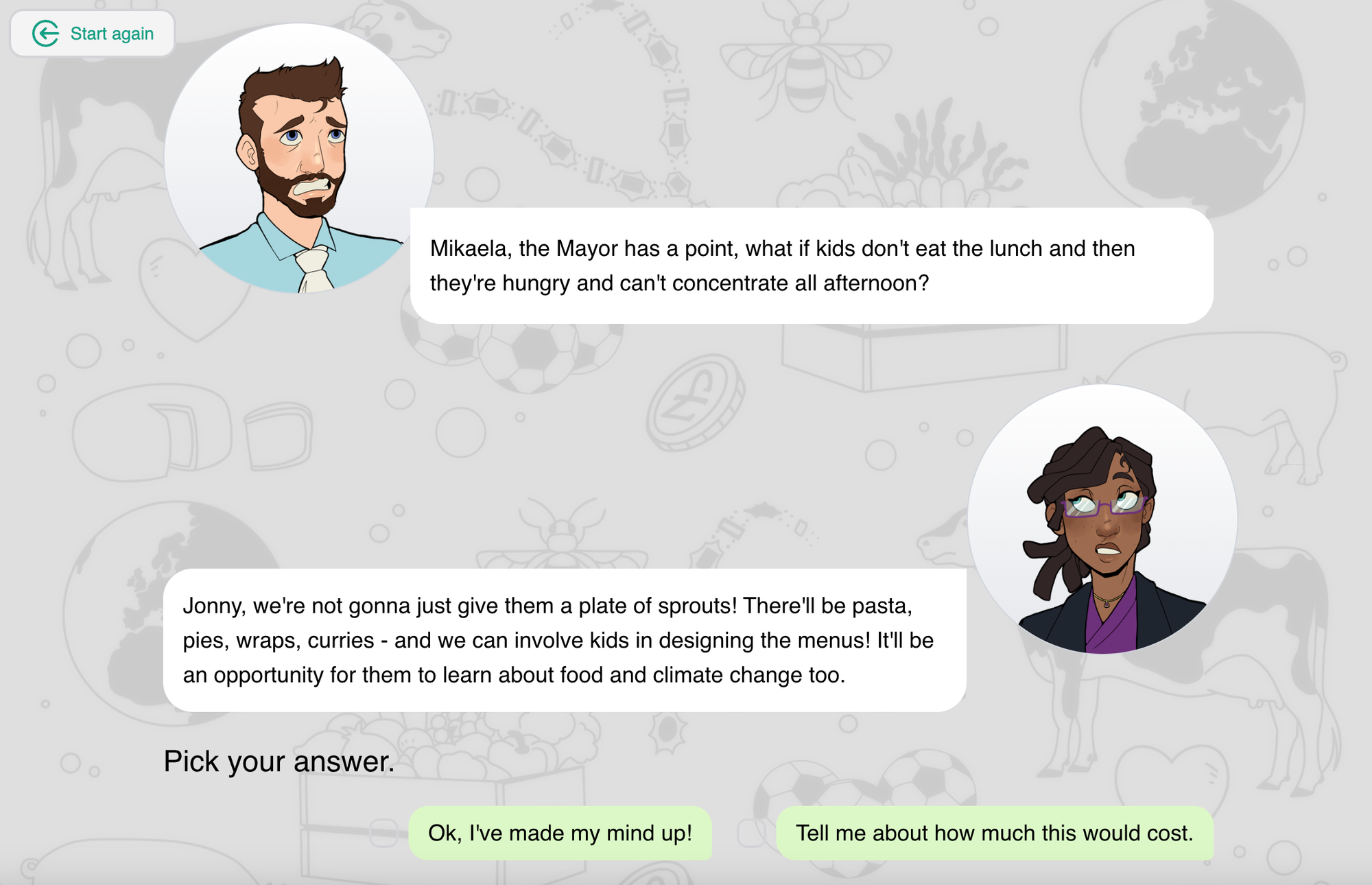
Once a player has made a decision on a policy, the game finds out the reason behind their choice. All the anonymised data that the platform collects can be used to inform future research and public engagement work.
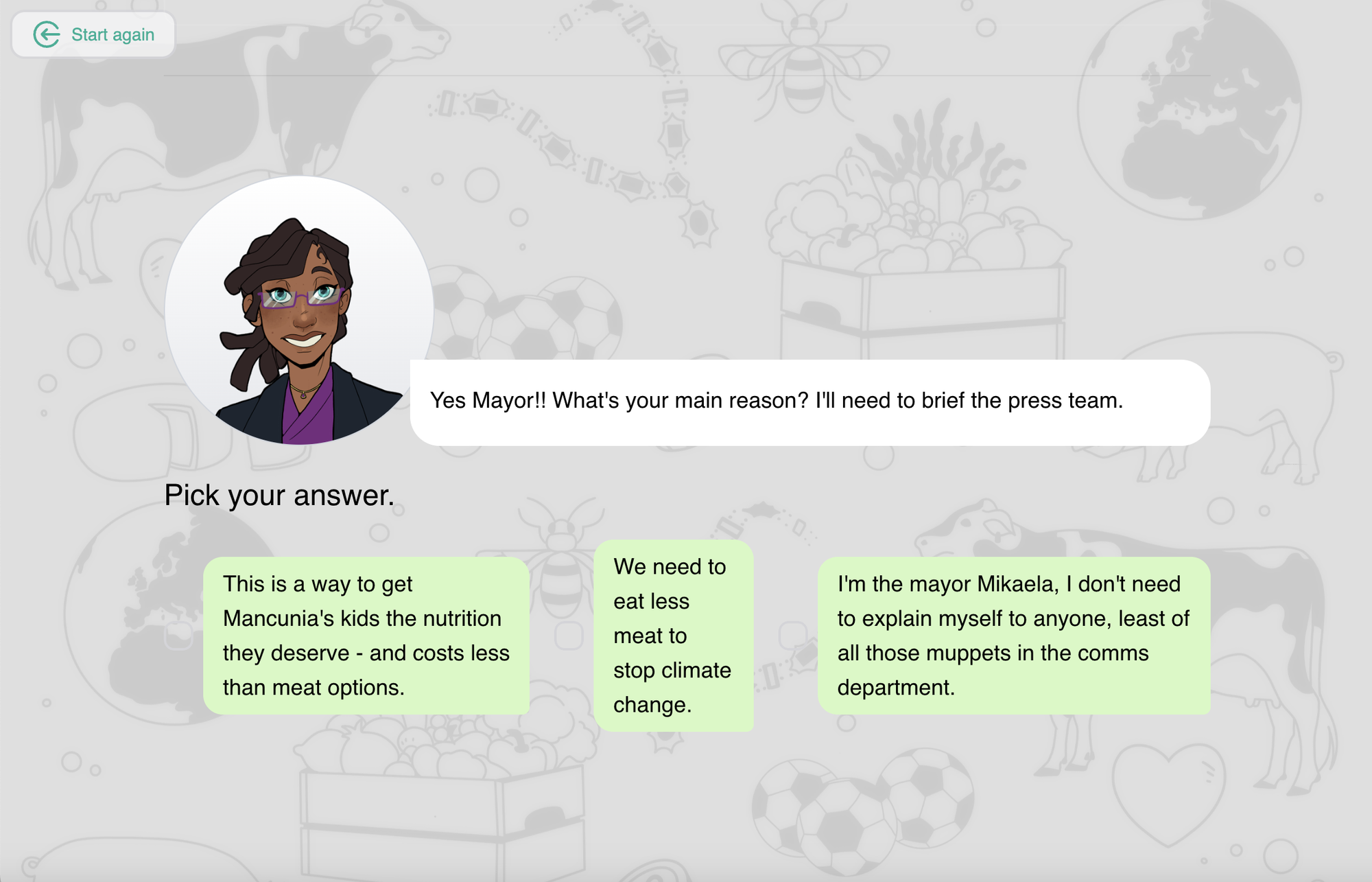
Players also get feedback on their decisions, through scores, commentary and media coverage.
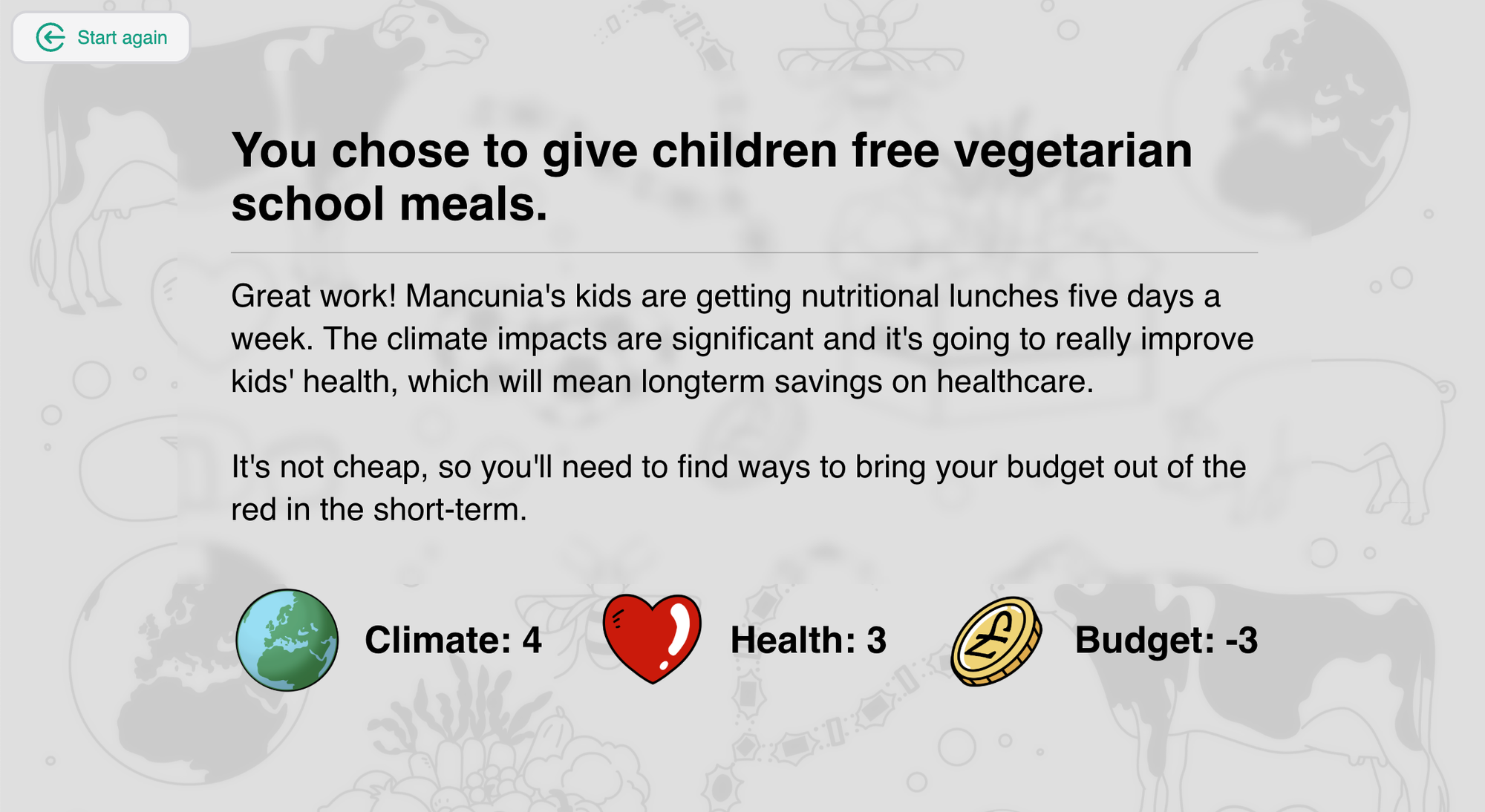
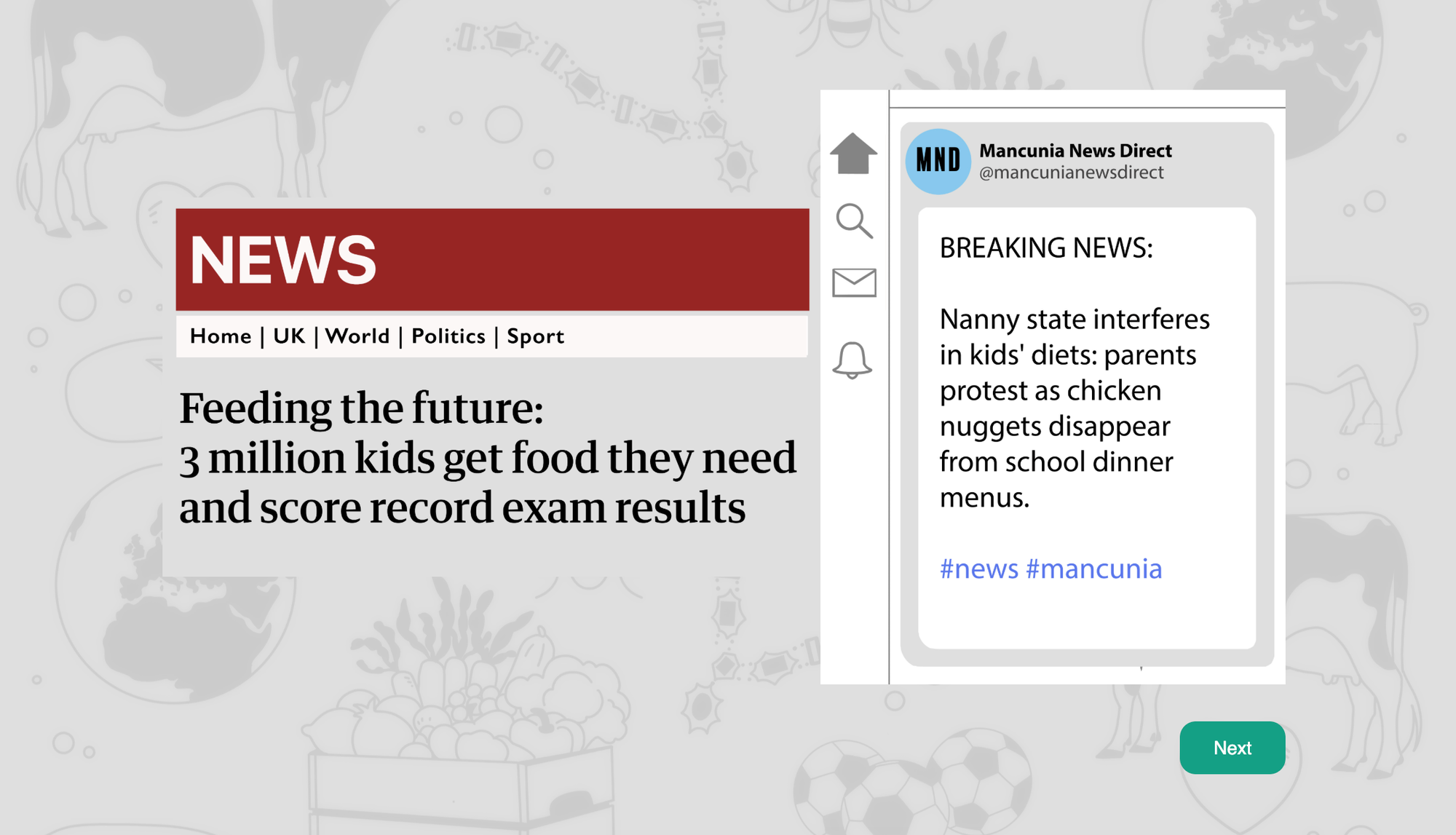
It’s a completely new tech platform, and one built for rapid prototyping. It’s possible to ‘programme’ a game in googlesheet, making it accessible to the non-technical and critically, making it very fast in future to get something in front of the public. I don’t love the term ‘public engagement’ because it centres the research, when actually if we’re serious about more people having access to more knowledge, we need to be putting the public -or just people- at the centre of our processes. Even if that means changing your plan and building something completely different -and much more complex- to what you planned.
(Now we just need the investment that we’ve made in this platform to pay off - get in touch if you want an interactive and fun way for people to discover more about the world and the biggest questions of our time!)

